When designing a seafood restaurant menu, the aim is to capture the essence of the ocean, using a style that complements the dishes served. A well-crafted seafood menu template can set the stage for an exceptional dining experience. Here, we’ll explore what makes a great seafood menu, essential design elements, and where to find quality templates.
1. Why a Good Seafood Menu Template Matters
A menu is more than just a list of dishes; it’s a customer’s first impression of your restaurant. For a seafood establishment, it should evoke freshness, sophistication, and a connection to the sea. The colors, fonts, and layout should reflect these themes, making the menu both visually appealing and easy to read.
SEO Keywords to Consider:
- Seafood menu template
- Editable seafood menu design
- Free seafood restaurant menu templates
- Printable seafood menu templates
Seafood Menu Templates
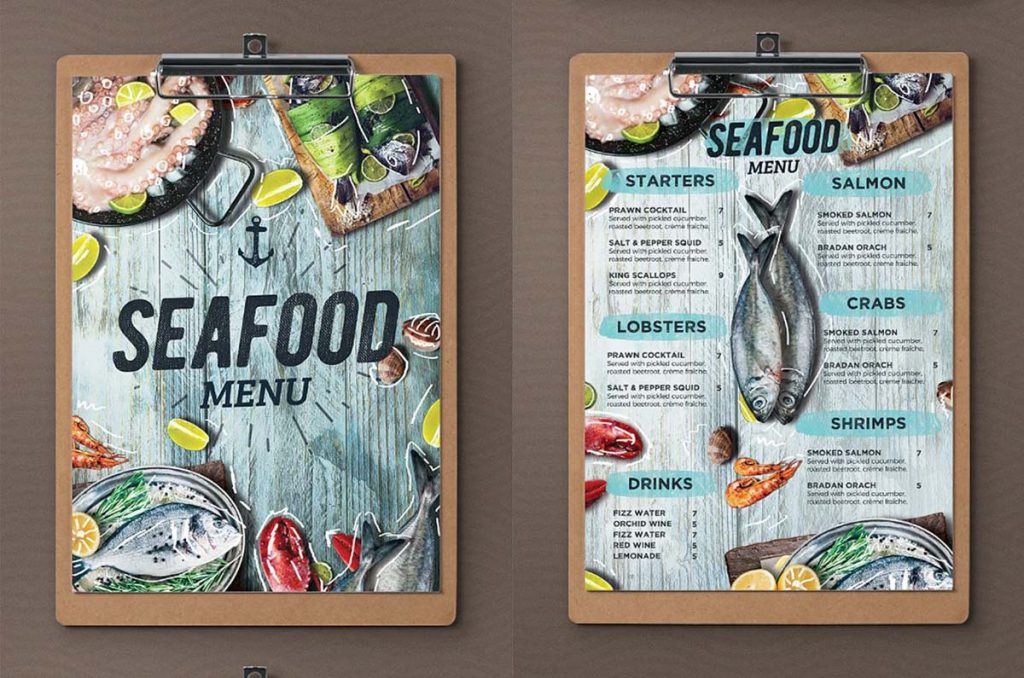
Rustic Seafood Menu Template
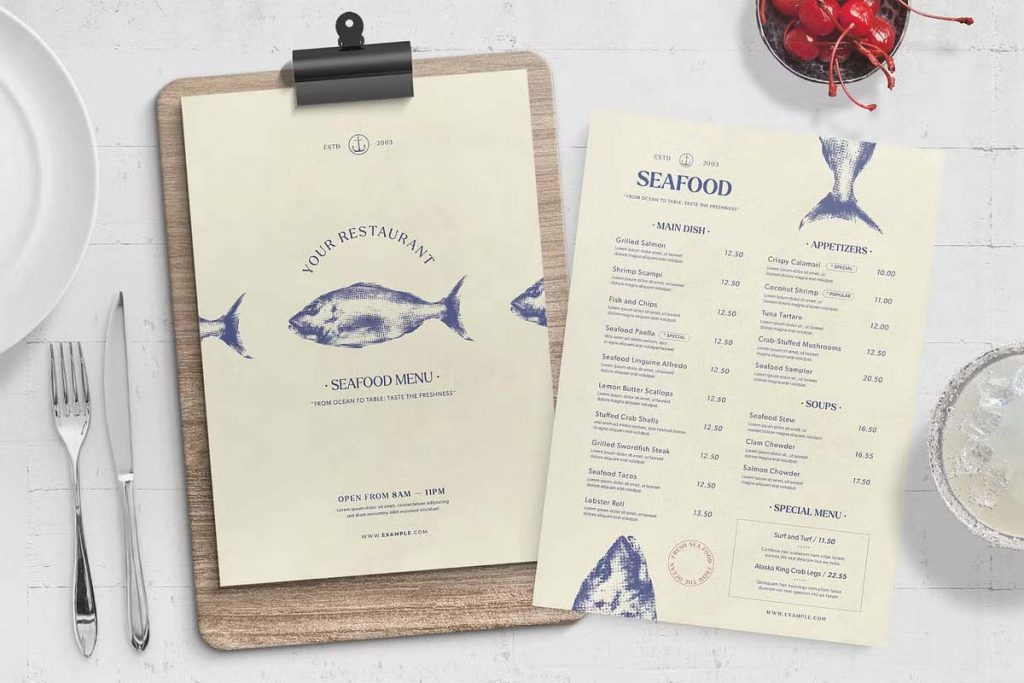
Seafooder Menu Template
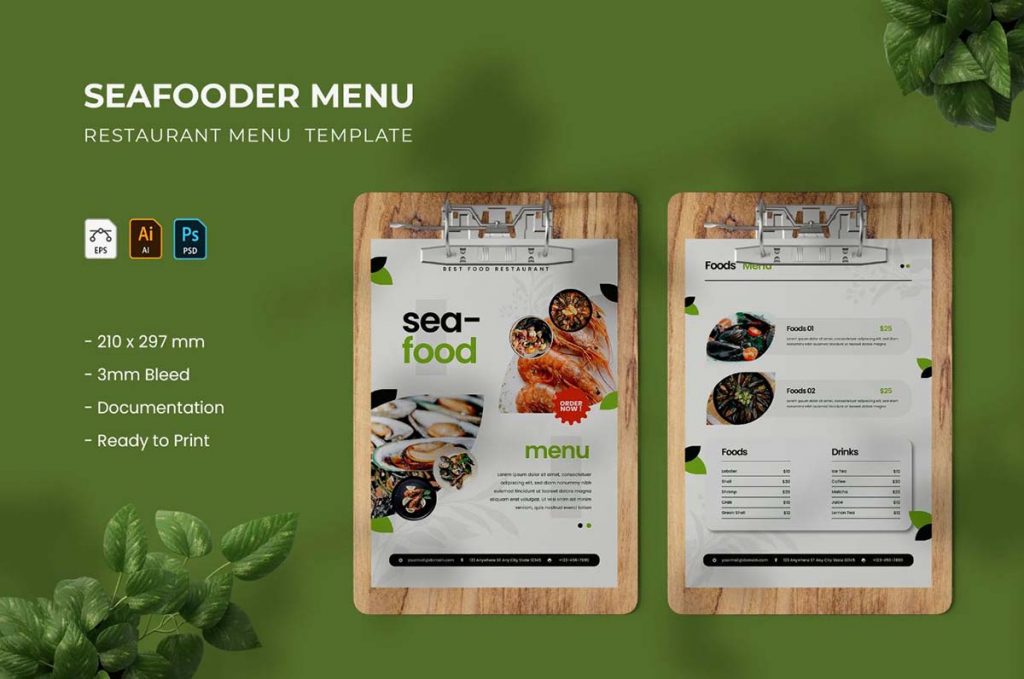
Seafood Menu Designs
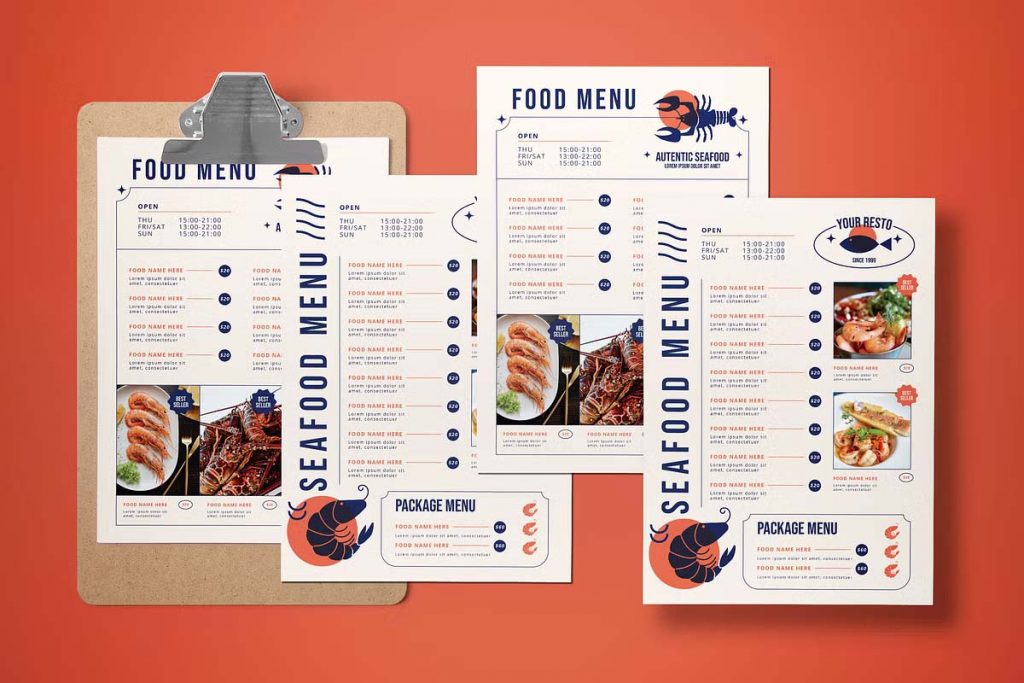
Sea Food Menu
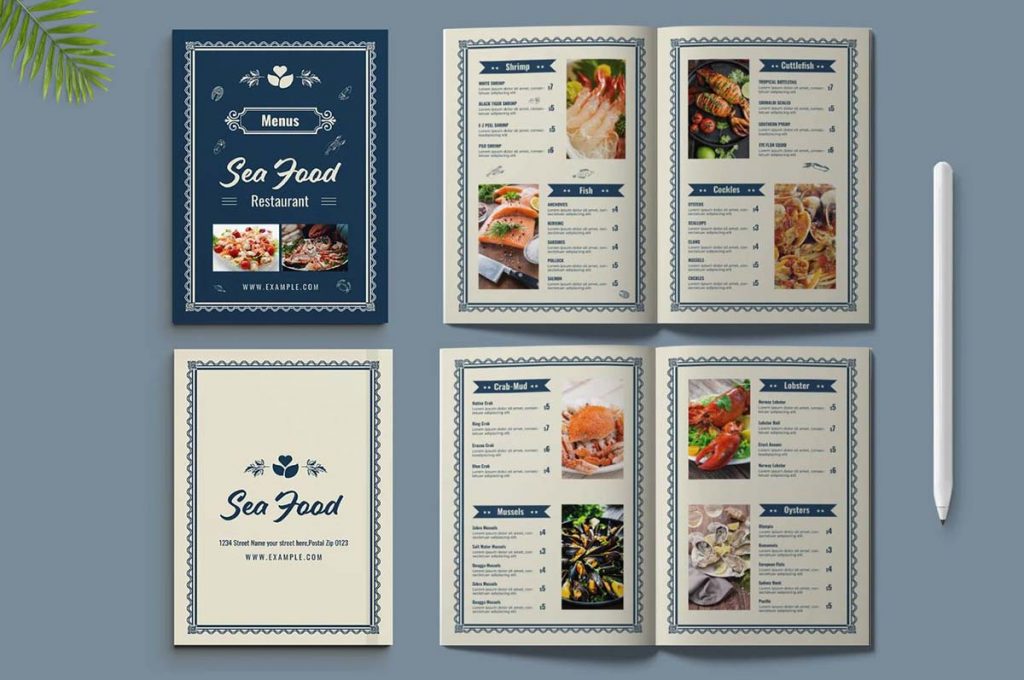
Seafood – Food Menu Template
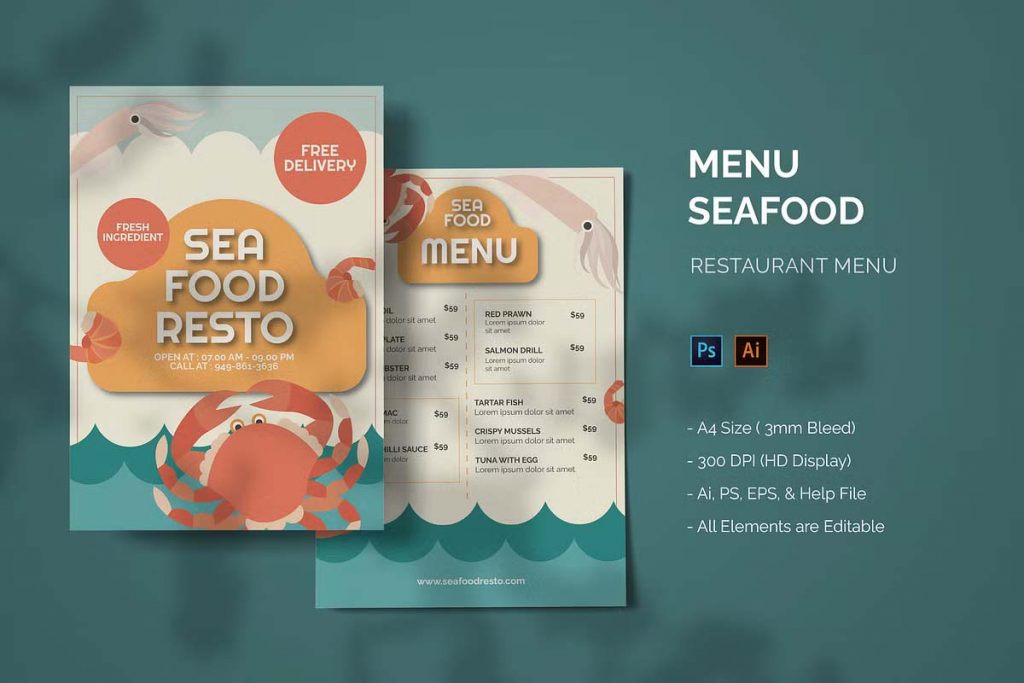
Seafood Menu Template
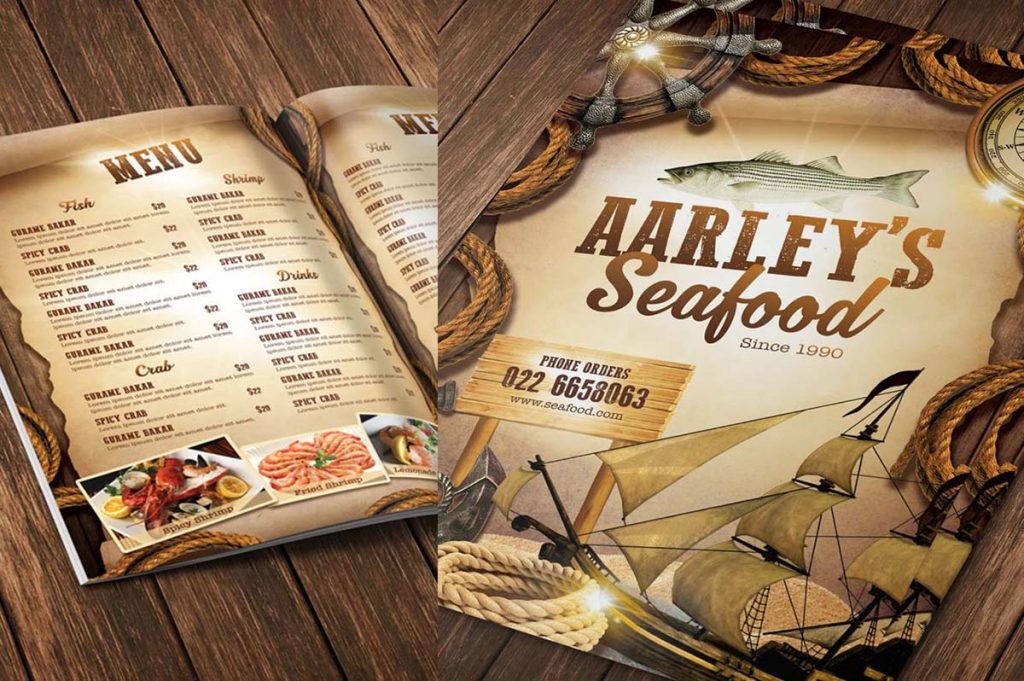
Seafood Menu Templates
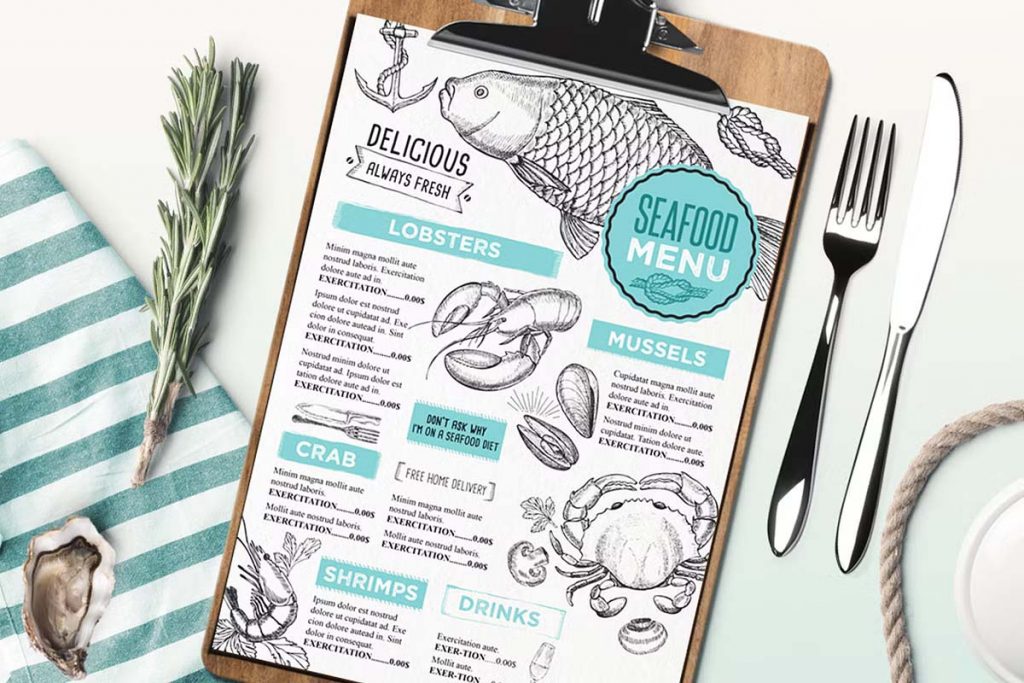
Seafood Menu Template
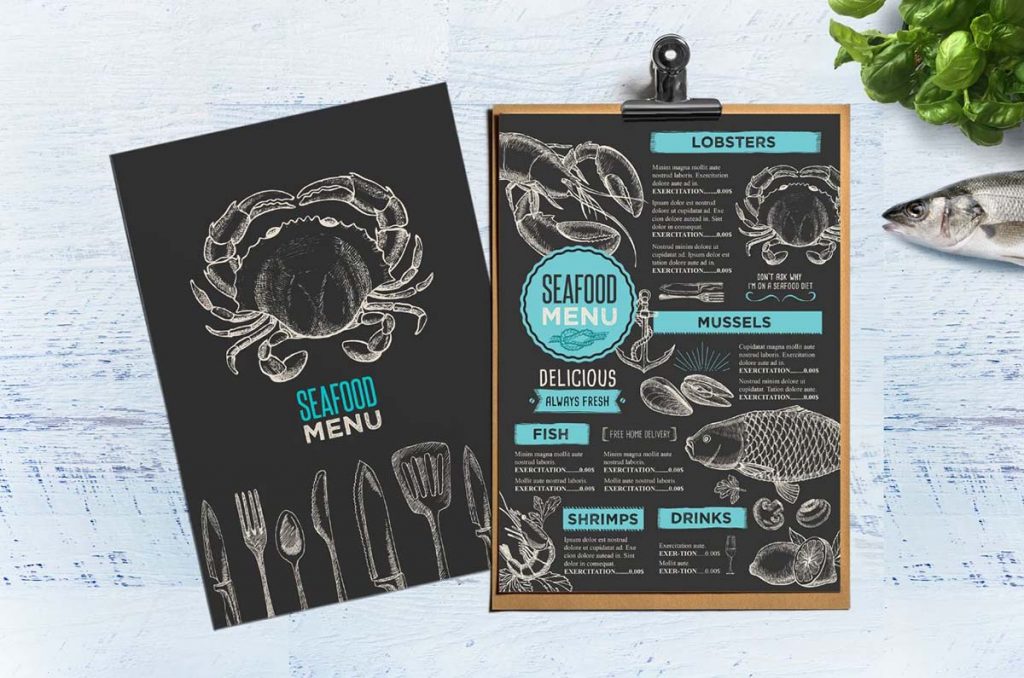
Sea Food Restaurant Menu
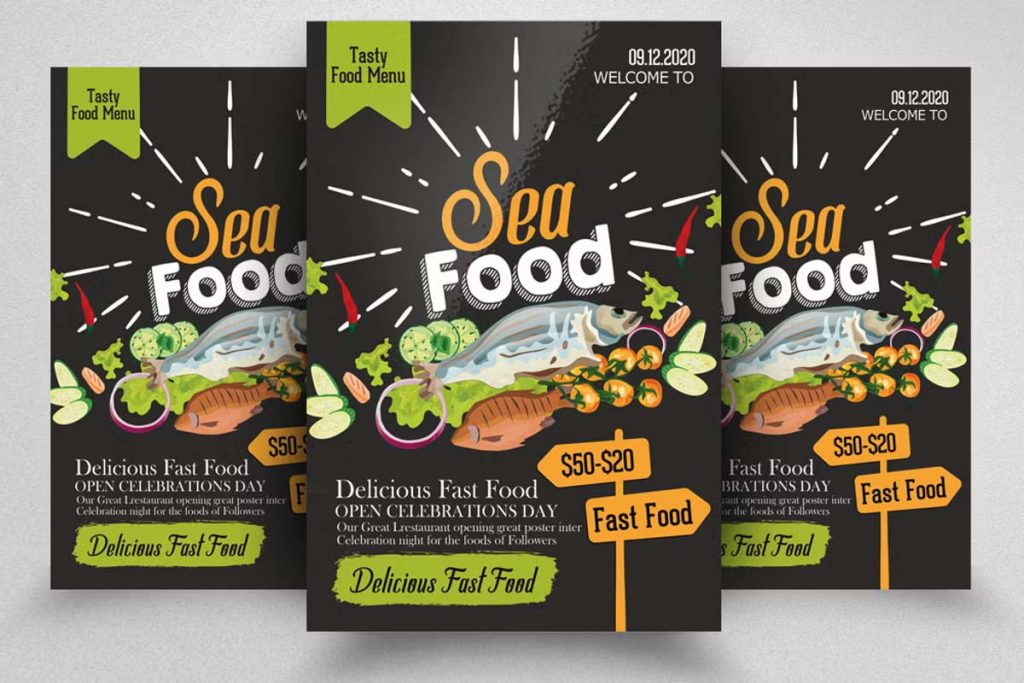
Seafood Menu Template
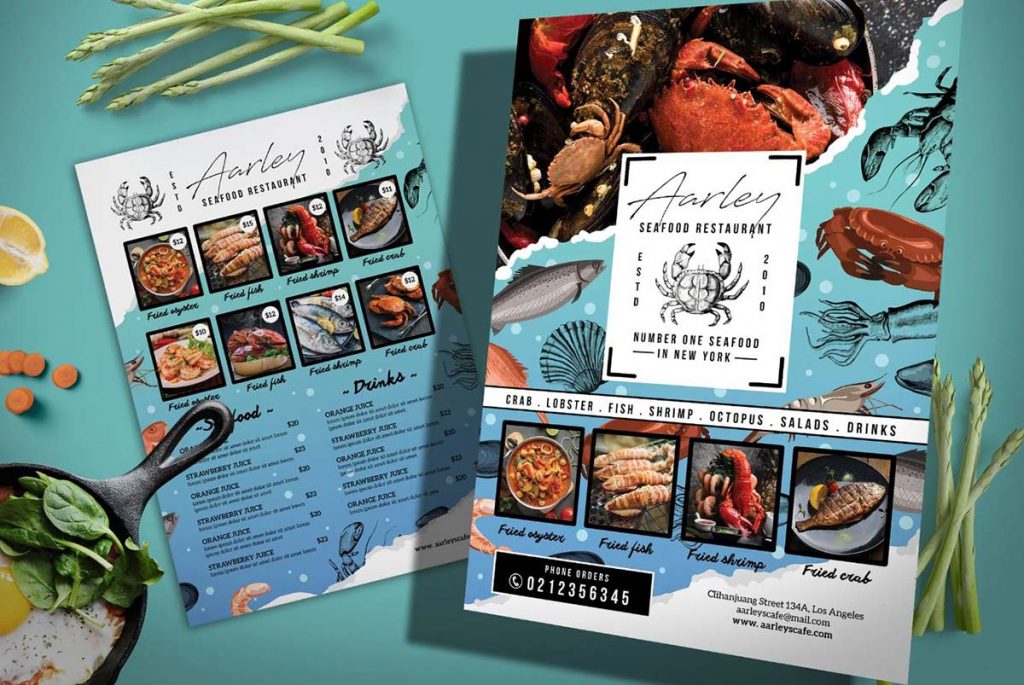
2. Key Elements of an Effective Seafood Menu Template
A. Clear Categories
Structure your menu in a way that makes it easy for customers to navigate. Typical categories in a seafood menu include:
- Starters or Appetizers (e.g., crab cakes, oysters)
- Soups and Salads (e.g., clam chowder, Caesar salad with shrimp)
- Main Courses (e.g., grilled salmon, seafood pasta)
- Platters and Combos (for those looking to try a little of everything)
- Sides (e.g., coleslaw, rice pilaf)
- Beverages and Desserts
B. Appropriate Imagery
Images are powerful but should be used sparingly on a menu. Too many images can clutter the design and make it look cheap. One or two well-shot images of signature dishes can elevate the overall presentation, making it feel refined and enticing.
C. Ocean-Inspired Color Schemes
Shades of blue, teal, and coral evoke the ocean. White backgrounds with navy blue or aqua accents create a sense of freshness, cleanliness, and elegance. Avoid overly vibrant colors that can detract from the sophistication a seafood restaurant often aims to convey.
D. Readable Fonts
Serif fonts can give a traditional, upscale feel, while sans-serif fonts offer a clean, modern touch. Keep fonts legible by ensuring proper spacing and contrast with the background. Pair fonts carefully, using a more prominent style for headings and a simpler one for descriptions.
E. Layout and Flow
Menus should have a natural flow that guides customers through sections effortlessly. Use borders, dividers, and section titles to direct the eye, while keeping enough white space to avoid overwhelming customers.
3. Creating an Editable Seafood Menu Template
Having a digital, editable template makes it easy to update seasonal items or prices. Programs like Canva, Adobe InDesign, and Microsoft Word offer flexible options for menu design, with many free templates available. Using an editable template allows you to adjust as needed without starting from scratch.
Popular Software Options for Templates:
- Canva: Offers user-friendly, drag-and-drop features with various templates.
- Adobe InDesign: For those who want more control and customization.
- Microsoft Word: Ideal for a simple, printable format.
Each software option has strengths, so choose one based on your design skills and time availability.
4. Top Sources for Free Seafood Menu Templates
Several websites offer high-quality, customizable menu templates:
- Canva – Canva has a variety of seafood menu templates, allowing users to adjust colors, fonts, and layouts.
- Template.net – Template.net offers free and paid templates, with editable designs for different themes and styles.
- Adobe Spark – Adobe Spark has modern, editable templates that are ideal for seafood restaurants looking for simplicity and elegance.
5. Customizing Your Seafood Menu Template
To make a template truly yours:
- Add your restaurant’s logo and tagline to enhance branding.
- Incorporate local specialties or unique dishes to make your menu stand out.
- Use callouts for signature dishes, such as “Chef’s Recommendation” or “Locally Sourced.”
6. Final Touches: Printing and Display
Print quality matters. Choose a durable, high-quality material that withstands frequent handling and spills. Laminated or plastic-coated menus work well for casual, high-traffic restaurants, while premium paper may be more suitable for upscale seafood establishments.
A seafood menu template isn’t just about listing dishes—it’s about conveying a story and style that aligns with the culinary experience you offer. With the right design, structure, and touches, you’ll leave a lasting impression on your guests, making their dining experience both delightful and memorable.
Creating an effective menu is an art form that, with the right template and a few custom tweaks, can be both easy and impactful. Explore free templates to get started, or design your own to craft the perfect dining experience!